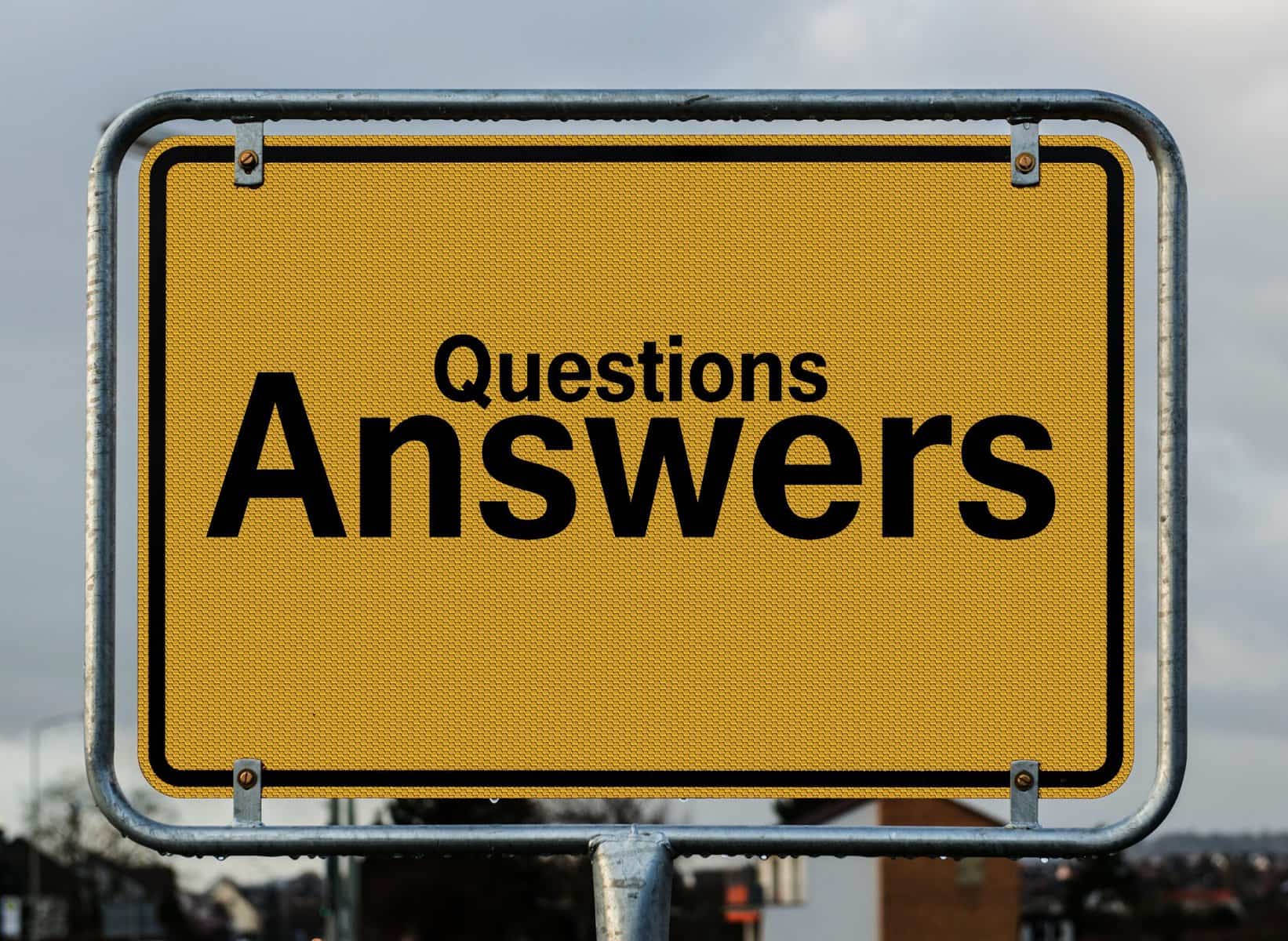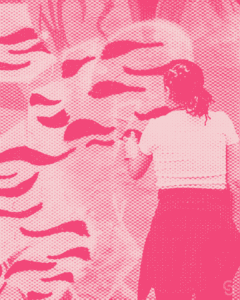 Q: “When in relationship with a person who desires to see Scriptural proof to ‘accept’ intersex people, how do you handle this, and do you have references for them?”
Q: “When in relationship with a person who desires to see Scriptural proof to ‘accept’ intersex people, how do you handle this, and do you have references for them?”
A: I have been told that intersex is a result of the Fall. That’s why my body’s not entirely male or female. But some who say that insist that I must view myself as entirely male or female based on the sex I might have been had Adam never sinned—not based on the body God gave me.
I have been told on more than one occasion that I should have accepted my body as it was, that I should have rejected any treatment for my intersex condition. Those people said that I should have lived out my life as a physically androgynous person rather than taking hormones and having surgery to appear more typically female. Yet it was the health of the body God gave me that I was attempting to preserve.
At the age of 22, I had the sex development of a pre-teen. I have long arms and legs because of my delayed puberty. I have osteopenia because of my lack of hormones. The same genetic condition that resulted in intersex gave me a feminine face. It left me tiny and frail as a child. I have mild heart and kidney malformations. I am hypothyroid. I have Ehlers Danlos and Dysautonomia. My body wastes electrolytes. I have Asthma.
No one has suggested that I shouldn’t be taking thyroid medication. Or seeing a cardiologist. Or a neurologist. The objections are only to the treatment I underwent to reduce my physical sexual ambiguity and to have a life that no longer revolved around questions regarding my sex.
Historically, the Church expected those with an intersex condition to live as a man or a woman. Most churches today still do. Why should the church treat me any differently than any other barren woman?
Why should you accept intersex people? Because we’re created in the image of God as surely as anyone else. Our bodies are different, but still given to us by God.
“For you formed my inward parts; you knitted me together in my mother’s womb. I praise you, for I am fearfully and wonderfully made.” Psalm 139:13-14 (ESV)
Psalm 139 was written by David, long after the Fall. We are still fearfully and wonderfully made. All of us.
– Lianne Simon
Q: “I recently met a young woman with a transgender experience who said she is accepted more by the heterosexual community than by the LGBTQIA+ community. This begs the question: How are Christian disciples of transgender and intersex experiences able to navigate between worlds?”
A: At an intersex support group meeting, my shields come down. Within minutes, I can talk with a complete stranger about body parts, surgeries, or even vaginal dilation methods. We share so much pain that conversation comes easily. I also know that an intersex person I meet at a support group meeting isn’t likely to judge me for my body or the medical treatments I’ve had. I can speak without fear. We can exchange ideas. I can share from the heart without hesitation. We can, quite literally, cry on each other’s shoulders.
I would love for my conversations with Christian friends to be that way. They’re not. Part of it is because they don’t understand intersex. Part of it is the time involved in explanations if I open up. All too often, the conversation centers on the culture wars or “the gay agenda.” I get that intersex isn’t part of my shared experience with them. Jesus is. But most of my friends don’t seem that interested in sharing deeply about their faith or their struggles with sin. So the conversations tend to be more shallow.
– Lianne Simon
A: Despite including transgender(T) and intersex(I) in the LGBTQIA+ label, in practice, this acronym is almost always referring to sexuality or to people who identify as queer. Most would suggest that the opposite of LGBT is straight, for example. Sexuality, however, is independent of gender. A straight, binary, transgender person who otherwise would not identify as queer has little in common with folks in most LGBT spaces. Research has also shown that the gay community is just as transphobic as the straight community. I (Allison) am active as a mentor and faith advocate for LGBT youth and families. In every LGBT space I have encountered I am viewed as an ally and not a member of the community. I do have close friends who are transgender with whom I can connect about the unique aspects of this experience, and it is helpful to have friends who get it.
– Allison
Q: “Do you feel that transgender identity is a ‘decision,’ or does it have biological components as well?
A: I understand that many are unaware of the medical evidence for gender dysphoria being biologically derived. It is probably a complex mix of genetics, hormones, and environmental exposure in utero. If one twin is transgender, it is significantly stronger than chance that the other twin will be also, for instance. Self-perception of gender is understood and set at a young age, and attempts to change this identity have been disastrous and are now considered abuse; such attempts are noted as highly contributing to the profoundly high attempted suicide rate of 40% among people with a transgender experience. Religious intolerance towards transgender people has been linked to higher suicide rates and profoundly high child homeless rates. In totally accepting environments, suicide rates are similar to general population, and the kids thrive. Interestingly enough, there is no proof that being left-handed is biologically derived. Since Scripture links the left with Satan and the spiritually rejected, there is a history of abuse in the church for left-handed people and forced conversion to right-handedness, etc., all justified by man’s interpretation of Scripture. One can make a strong man-made case from Scripture for this sentiment.
– Allison
Q: “When in relationship with a person who desires to see Scriptural proof to ‘accept’ transgender people, how do you handle this, and do you have references for them?”
A: I would like to share a bit about my spiritual journey here. Before I transitioned, most of my physical, faith, spiritual, and emotional energy went towards denying or suppressing the gender dysphoria and being what others needed me to be. Consequently, my faith was one of obligation. There was no perceived grace or “rest for the weary.” The stress of living with the dysphoria and simultaneously embracing a deep faith was like walking a tightrope. If I embraced my gender identity at all, my conservative training caused shame. If I denied my identity for what I believed were faith reasons, I felt extreme pain. This is the nature of dysphoria in a conservative faith context. The stress robbed me of my physical and emotional health.
When I realized that my faith and gender identity were not mutually exclusive and worked through this reality, my physical, emotional, and spiritual health was restored and have actually never been better. My faith is now clearly based on grace and rest for my weary soul and not conformity to rules made by conservative tradition. I am able to love freely even when it is not returned. Before I transitioned, arrogance was one of the coping mechanisms I used to combat the dysphoria. Arrogance lets us put up walls. Pride, however, is probably the most egregious of sins. After transitioning, I am able to walk humbly in wonder of the works and hand of God. I am able to see and meet the needs of others without judgment. I read Scripture nearly daily but it is now to encounter God and better understand our human limitations and not to look for proof-texts for every circumstance.
I think that it is all too tempting and the height of arrogance when we feel we can fully interpret all circumstances (with our well selected proof-texts), as if we knew the mind of God in all things. Some would appear to worship the Bible or their own interpretation of the Bible, more than God. I prefer to believe in a God that is vastly more creative (and diverse) than I can begin to imagine in His ability to create in nature and love us. I endeavor to do the same. The gospel is truly good news and not the beginning of obligations. Before and after transitioning, I have always come back to this passage as a guide (1 Thess. 2:7-8): “But we proved to be gentle among you, as a nursing mother tenderly cares for her own children. Having thus a fond affection for you, we were well-pleased to impart to you not only the gospel of God but also our own lives, because you had become very dear to us.” It means more to me now than ever.
– Allison
Lianne Simon and Allison are featured in our webinar on intersex and transgender experiences, Gender, Jesus & the Body of Christ. You can learn more about them on that page.


